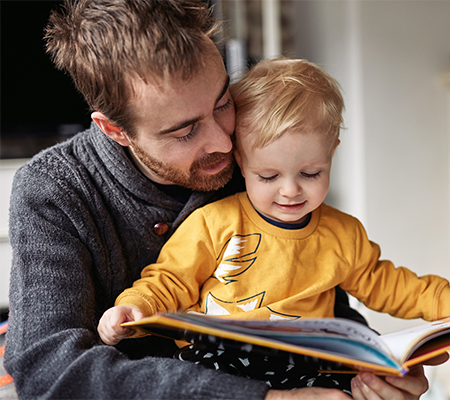There are lots of questions, misconceptions and myths when it comes to the age children should speak. There also are many reasons why children may have a speech or language delay.
This includes chronic ear infections or hearing loss, developmental disorders such as Autism Spectrum Disorder, genetic syndromes like Down Syndrome and trauma exposure.
Children develop at their own rate, but it’s important to know the developmental milestones around speech and language and what to watch for.
“Language and communication development can be seen from birth,” said Tricia Fredrickson, speech pathologist with Marshfield Children’s. “This includes looking in the direction of their caregiver during feedings or turning in the direction of sounds within their environment.”

Speech and language milestones in kids
While every child is different, Fredrickson said there are speech development milestones children typically reach by a certain age. Key milestones providers looking for during evaluations include:
- Babbling (bababa, dadada, mamama) by six to 10 months
- First words by approximately 12 months (this can include sign language)
- Understanding three to 50 words by 12 months (this includes responding to names and voices of others)
- Understanding 50 to 100 words by 18 months
- Combing two words by 24 months
- Increasing understanding of ‘wh’ questions by 30 months (who, what and where)
- Being understood all the time by unfamiliar listeners in an unknown context by 4 years
- Speech sounds develop consistently as the child ages
When to see a provider
Fredrickson recommends talking to the child’s primary care provider or a speech therapist if the child isn’t speaking words by 18 months.
Other reasons to see a provider include:
- The child not responding to their name or safety commands by 12 to 18 months
- Difficulty understanding the child 75% of the time by three years
- A decreased social reciprocity (no interest in things like peek-a-boo games)
- More interest in objects than people
- Lacking pre-verbal communication skills (such as pointing, waving hi and bye)
- Significant tantrums (beyond what is expected of a toddler)
- Significant sensory concerns
“Many times we will do a parent interview to obtain more information on concerns, the child’s history and their current skills,” Fredrickson said. “We will play with the child to gain more information on their skills and may record a speech/language sample and do some assessments.”
Parents and guardians can help stimulate their child’s speech development
Narrating actions or events in the environment may help their child understand language and aid in speech development.
“Say things out loud such as, ‘I am cutting the strawberries’ and ‘the dog is running’,” she said.
Play together and avoid screen time. Games such as peek-a-boo, chase, rolling a ball back and forth are great for emerging language. Read books and narrate what is happening in the pictures. Singing songs together also may help.






Leave a Reply